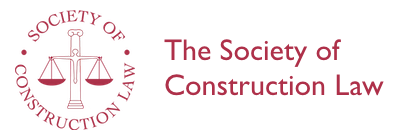Quantum Meruit as a Remedy in Construction Law
Andrew Skelton, David Robertson and Zoë Bashforth
March 2022
A paper presented at the 9th International Society of Construction Law Conference 2021 in New Zealand and winner of the Routledge Prize.
This paper focuses on two situations where non-contractual quantum meruit may be available as a remedy: where work is done pursuant to an anticipated contract which fails to materialise; and where work is done under a contract subsequently cancelled for repudiation or breach. The first situation has been the subject of a recent High Court case in New Zealand, Electrix v The Fletcher Construction Company. The case raises issues as to whether the non-contractual quantum meruit remedy in New Zealand law is about the reversal of benefits unjustly obtained or compensating the claimant for work done. The second situation is more controversial as quantum meruit is seen as competing with damages for breach of contract as a remedy and potentially undermining the contractual allocation of risk agreed between the parties. These issues are addressed in the 2019 decision of the High Court of Australia in Mann v Paterson Constructions. The authors discuss the availability and doctrinal basis for the quantum meruit remedy in these situations in New Zealand, Australian and English law and also consider practical issues arising in relation to the valuation of a non-contractual quantum meruit.
Introduction – New Zealand Law – Unjust enrichment in New Zealand Law – Anticipated Contracts which fail to materialise – Work done under a contract which is subsequently cancelled for repudiation or breach – English Law – Unjust enrichment under English law – Availability of quantum meruit for work done under a contract which is subsequently cancelled for repudiation or breach – Basis of quantum meruit – Valuation of quantum meruit – Availability of quantum meruit where enrichment is conferred under an anticipated contract – Basis for quantum meruit – Valuation of quantum meruit – Valuation Issues – Introduction – What is a reasonable sum? – Valuation methods – Valuing the works based on actual cost – The parties’ conduct – Defining the limit of the reasonable sum in relation to the contract price – Circumstances where it may be unconscionable to limit the plaintiff to the contractual measure – Works instructed outside the scope of the contract – High value works are performed early/front loaded cashflow – Acts of prevention or breach of contract –Where the contract price was inadequate for the performance of the contract – Where there were errors in the SOP or the contract was measure & value – Conclusion
The authors:
Andrew Skelton is a Barrister practising from Capital Chambers, Wellington
David Robertson is a Partner at White & Case, London
Zoë Bashforth is a Senior Quantity Surveyor at WT Partnership, Auckland.
Text: 48 pages
